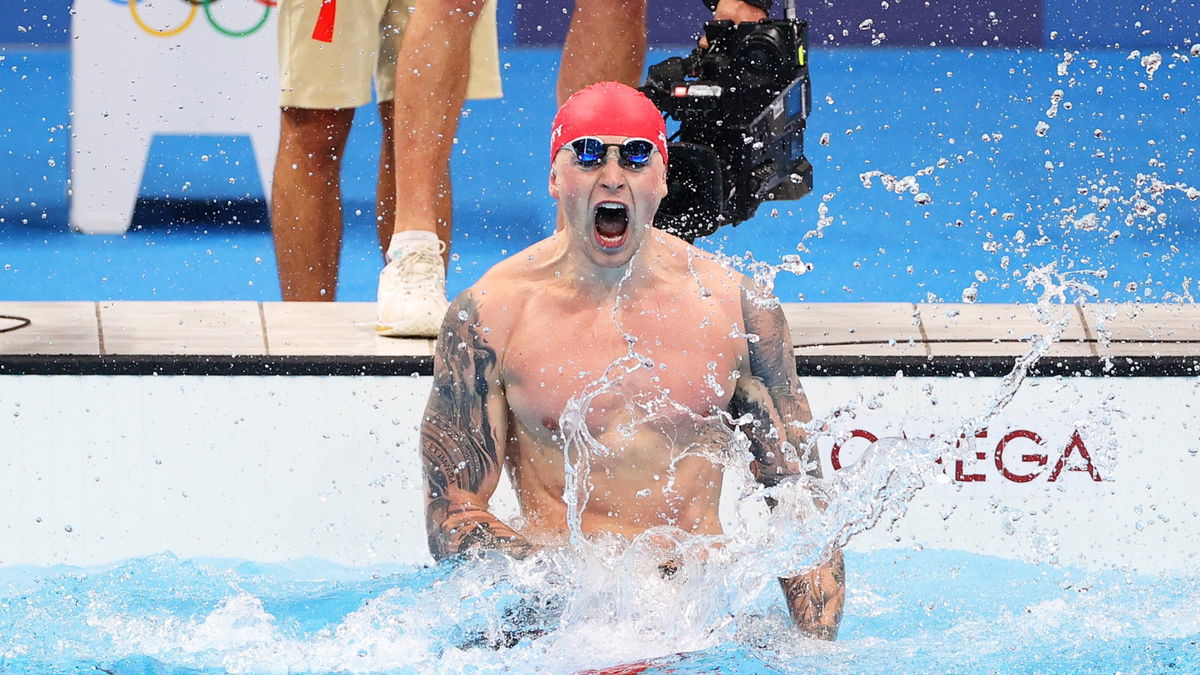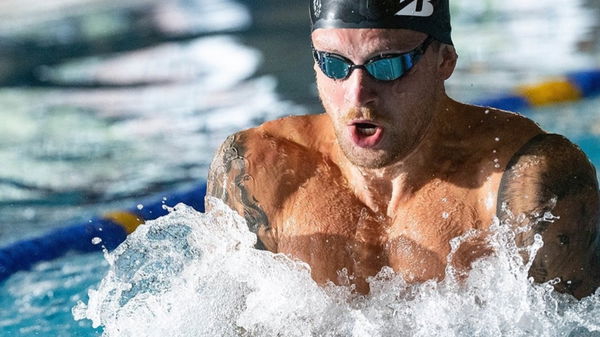

The doping fiasco about the Chinese swimmers has once again shaken the integrity & transparency aspect of the sporting world. At the center of it is the revelation that 23 swimmers were cleared to participate in the Tokyo Olympics despite having tested positive for banned medicines. It have been brought to the fore by a German documentary and a New York Times report a few days back. Since then, prominent faces from different quarters have voiced their frustration over the matter. British Olympic champion swimmer Adam Peaty was one of the first to respond, saying, “So disappointing from WADA”. Now he stood for transparency once again while also offering another perspective.
Watch What’s Trending Now!
On 24th April, he told BBC, “As an athlete you want to be treated fairly and [have] full transparency and make sure that in those cases those results [positive test] are not hidden and they’re not put under secrecy.” He cleared that his concerns were not specifically with any country. Rather, it lies more with the process that allowed positive tests to remain undisclosed for such a long period. However, amid all this, the champ acknowledged the need to manage his emotions and save it for the best in the upcoming Olympics.
“So if I’ve ever got a reason to do one, it would be this one, but I’ve got to keep my emotions in check on that one and make sure we’re ticking off the process every day and using the emotion when we need it,” Peaty said. Although Peaty was somewhat neutral in his expression, many are not and they came down heavily on the world regulatory body, as well as the Chinese authorities.
ADVERTISEMENT

Imago
Adam Peaty
Peaty’s call for transparency found resonance with countryman James Guy, who wrote, “Wow. Ban them all and never compete again” on social media. Equally scathing was the United States Anti-Doping Agency (USADA) chief executive Travis Tygart. He alleged that WADA and CHINADA had “swept these positives under the carpet by failing to fairly and evenly follow the global rules that apply to everyone else in the world”. German Minister of Interior Nancy Faeser went one step up when she said just yesterday that the matter was “a slap in the face of all innocent and honest athletes.” Amid the faces is a prominent one who openly took a tough stand to take the doping issue head-on.
Australian Olympic Gold Medalist Swimmer Mack Horton asked for more accountability and concrete steps from the global bodies. Horton created quite an uproar when he declined to share the podium with Chinese swimmer Sun Yang after finishing second to him in the 400-meter freestyle at the 2019 World Championships in South Korea. He explained his feelings, stating, “Frustration. I think you know in what respect.” Interestingly, despite all the slamming, CHINADA and WADA do not look to be on the back foot.
ADVERTISEMENT
China and WADA come out strongly in defense
Beijing dismissed the reports straightaway, calling them fake. “The relevant reports are fake news and not factual,” said China’s foreign ministry spokesman Wang Wenbin. Defending the findings, Wand further added, “After an in-depth and detailed investigation of this incident by the China anti-doping center in 2021, it was determined that the relevant athletes had ingested contaminated drugs without their knowledge.” In backing up his statement, he also referred to WADA. “I believe you will also have noted that the World Anti-Doping Agency has put out a very clear response,” he stated. So what was that response?
ADVERTISEMENT
The World Anti-Doping Agency cited a lack of evidence challenging China’s account, affirming the swimmers’ innocence. In a press conference recently, WADA president Witold Banka said that the agency “followed all due processes and diligently investigated every lead and line of inquiry in this matter” and found “no evidence of wrongdoing … and no credible way to disprove the contamination theory that was accepted by CHINADA.”
The body has even threatened legal proceedings against Tygart for his “outrageous, completely false and defamatory remarks.” Clarification also came from China’s Australian swimming coach Denis Cotterell, who said recently that from the age of 14, Chinese swimmers are prohibited from eating in public because of the risk their food could be contaminated with a banned substance. With so many contradictory opinions, it remains to be seen how it affects the swimming scenario in the upcoming big games.
Top Stories
Update Announced on Josh Allen’s Bills Staying Near Brown University Amid Tragic Incident

Forced to Leave FOX, Cowboys Legend Troy Aikman Says ESPN Is Like ‘U.S. Government’ & Clearly Distinguishes the Two Networks

Michigan Football Receives Disappointing Kenny Dillingham News on Saturday

2025 Vic PGA Championship: Prize Money, Winner’s Payout & More Explored

Army vs Navy: Why is U.S. President Donald Trump Attending the Game?

$250M Michigan Booster Reveals More to Sherrone Moore Saga After Paige Shiver Confirms Police Visit

ADVERTISEMENT
ADVERTISEMENT
ADVERTISEMENT

